Test Your Knowledge!
Cerebral Palsy - Physiotherapy Management in Children and Young People
Question
What are the three therapy intervention approaches which have produced the most researched results for positive outcomes for a child with cerebral palsy?
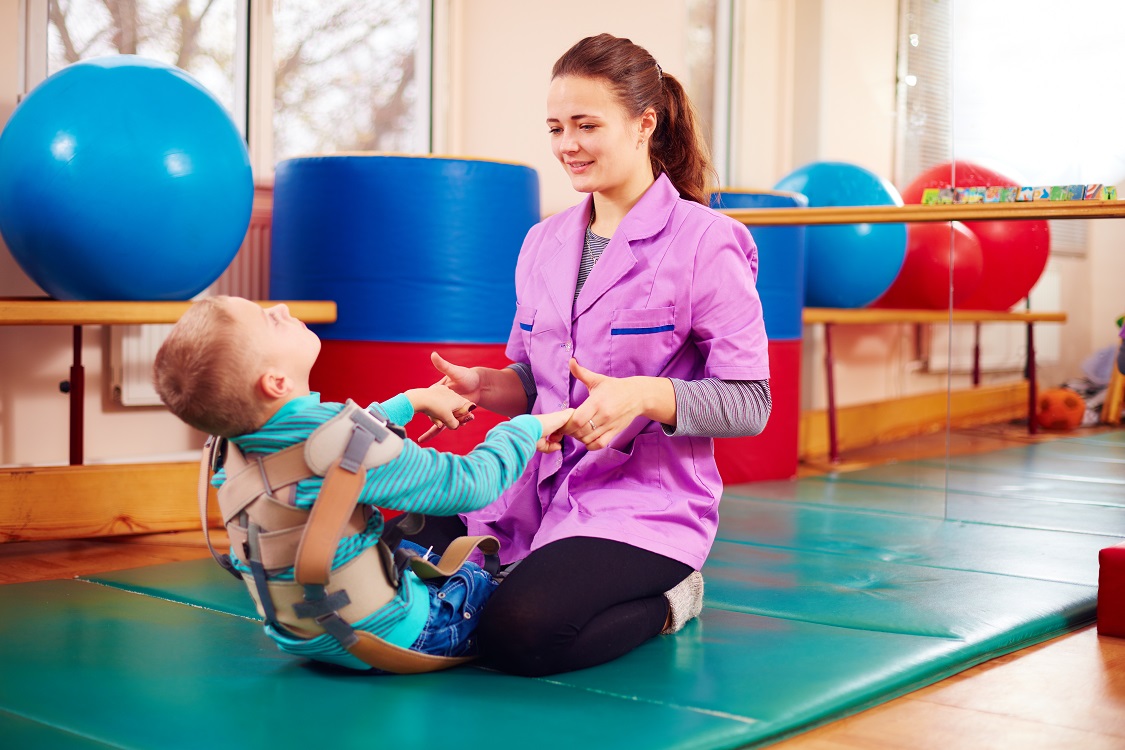
Answer
According to the evidence, therapy for children with cerebral palsy is most effective when it is focused on 3 main areas:
1) Child-active Rehabilitation - Child-active approaches are where the child is actively practising real-life tasks during therapy (usually in real-life environments), for the purpose of gaining or consolidating real-life skills that they want to learn.
2) Compensatory and environmental adaptation approaches- whereby society inclusively changes around the child instead of changing the child - these include the provision of environmental and task modifications such as specialist equipment to accommodate the child’s disability, promote inclusion, and independence
3)Health and secondary prevention approaches- the provision of interventions designed to (a) manage the child’s health and comorbidities, which can be as disabling as the motor impairment itself (e.g., seizure control), and (b) prevent or lessen the natural history of cerebral palsy (e.g., contractures) from worsening the child’s outcome.
How did you get on?
This question and answer is from the tutors on the upcoming Online Mini Series Course 'Cerebral Palsy - Physiotherapy Management in Children and Young People'. For highly practical help with your young patients with Cerebral Palsy, read on....
Cerebral Palsy - Physiotherapy Management in Children and Young People
Get to grips with assessments and management protocols in this easy to attend, fully guaranteed, Online Mini Series™ from CPD Solutions

Being able to do the course in your own time at your own speed was really useful
The video loops as well as the images really helped to visualise and reinforce learning
The ongoing access is great for watching again when I have a relevant patient
- Get a practical overview of young people with cerebral palsy and how you can help them
- Have an awareness of secondary complications and common comorbidities present in cerebral palsy.
- Understand your role as physiotherapist within a multidisciplinary team
- Understand the 10 factors that influence neuroplasticity and how these can be applied to a Paediatric group.
- Learn how we can apply the principles of Neuroplasticity to our therapy intervention.
- Develop knowledge and understanding of Constraint Induced Movement Therapy
- Discuss the current evidence for Botulinum Toxin
- AND…you have a whole year’s access to recorded sessions for reviewing key points
- Watch the recordings on your mobile, iPad, PC or laptop
- Get 8 Hours of CPD and your personalised CPD Certificate with this course
- Superb value for money – you learn without travelling or paying for accommodation, childcare or petcare
What Will You Learn On This Course?
Session 1
Cerebral Palsy - What is it and how does it present?
Friday 3rd May, 12pm-2pm
Speaker Andy Ringer (Paediatric Physiotherapist)
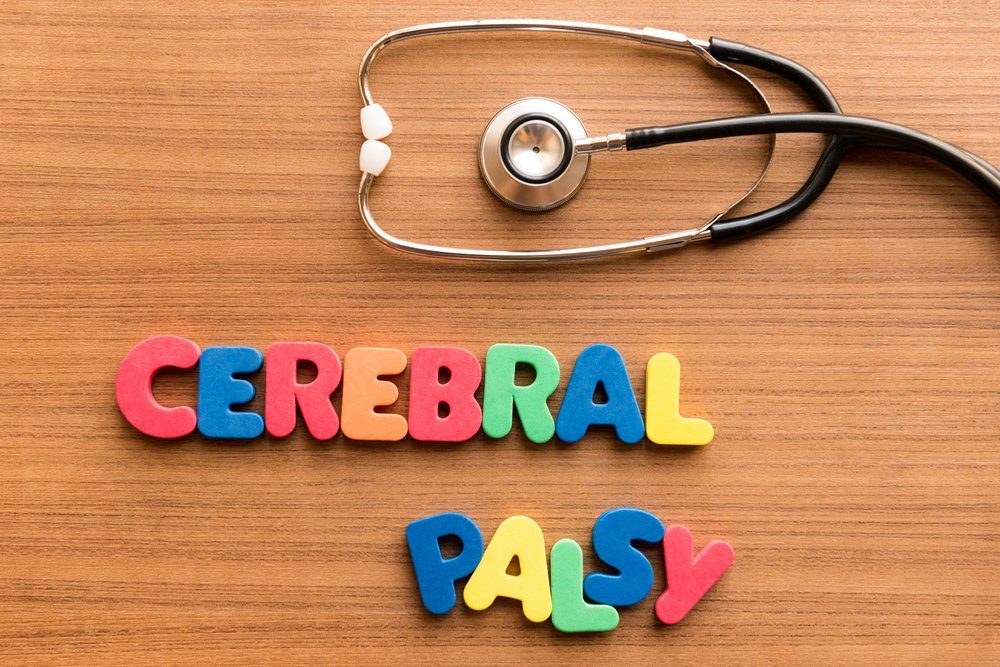
Cerebral palsy is the most prevalent neurological condition impacting children worldwide, affecting 1 in 400 births in the UK. Cerebral palsy is an umbrella term that encompasses a varied and broad description of patients and their presentations. The management of children & young people with this complex neurological condition requires a basic knowledge of brain anatomy & function, and how injury or lesions to certain areas of the brain will impact upon patients movement & function.
Cerebral palsy is defined as a ‘non-progressive’ brain lesion, but a patients presentation and movement will change over time. Many patients with cerebral palsy also present with a multitude of comorbidities and secondary complications, potentially resulting in an even more complex clinical picture. With the knowledge gained from this webinar, therapists will be able to participate in a holistic, participation based therapy assessment and understand why patients may present with certain clinical characteristics. What you'll learn:-
- Be able to define cerebral palsy and understand why patients present with different types of movement disorder.
- Have an awareness of secondary complications and common comorbidities present in cerebral palsy.
- Have an awareness of global physical milestones; typical vs atypical development.
- Assessment principles and approaches
- Discussion of role of physiotherapist within a multidisciplinary team
Session 2
Early Intervention in Cerebral Palsy - Importance and Implications
Friday 17th May, 12pm-2pm
Speaker Melanie Horton (Paediatric Physiotherapist)
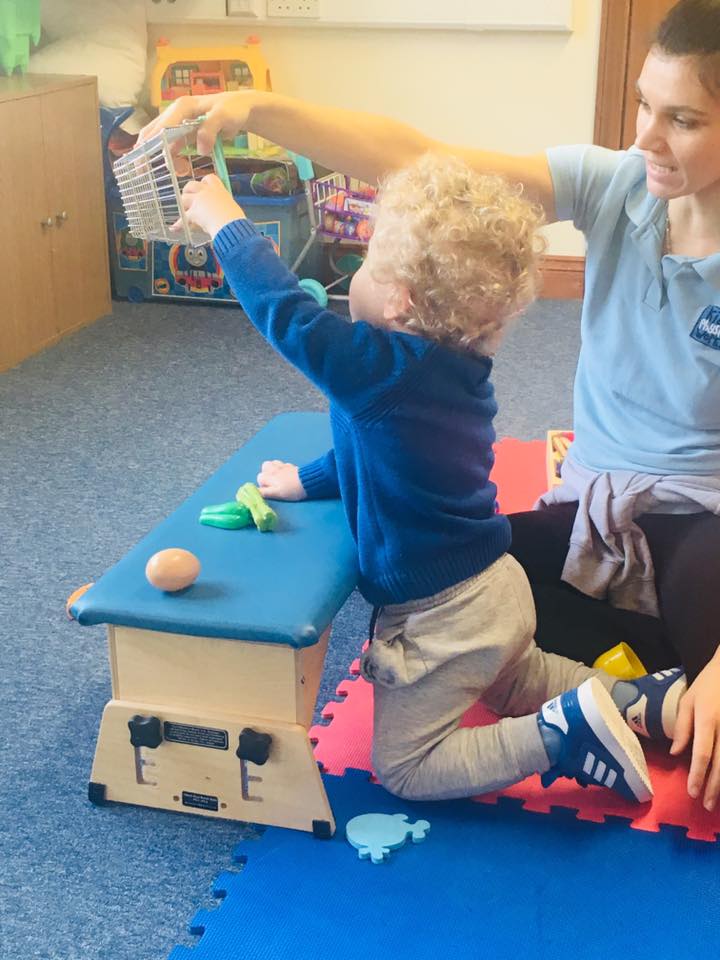
Evidence is now strongly supporting the importance of early intervention with children who have acquired a brain injury resulting in a diagnosis of Cerebral Palsy. This therefore is of great significance to treating therapists for whom have children on their caseload with such diagnoses. When the young brain is developing, dendrites and synapses are produced a high rate, making this the optimal time and opportunity to make new pathways for motor learning. Therefore, following an insult/injury to the brain, focus of therapy should be to optimise neuroplasticity through building and strengthening new pathways to help children develop, learn and consolidate skills required for gross motor development. The brain is proved to be most receptive to changes when the activities and interventions carried out are task specific, purposeful and meaningful to the child, and then such activities need to be repeated intensively.
What you'll learn:-
- Be able to define neuroplasticity and to understand cortical re-organisation and how this can be influenced positively with therapy.
- Understand the 10 factors that influence neuroplasticity and how these can be applied to a Paediatric group.
- Discuss why intervention as early as possible following brain injury helps optimise neuroplasticity
- What Are the Therapies/Treatment That Offer the Most Researched Results to enhance neuroplasticity?
- Discuss how we can apply the principles of Neuroplasticity to our therapy intervention.
Session 3
Evidence Based Treatment for Children and Young People with Unilateral Cerebral Palsy
Friday 31st May 12pm-2pm
Speaker: Kirsty Shepherd (Paediatric Physiotherapist)

As autonomous practitioners it is important that we deliver the most up to date evidence based rehabilitation techniques, to children and young people, to optimise their gross and fine motor skills thus improving their independence in the future. Physiotherapists should be able to complete a thorough assessment that includes standardised assessments to plan for each patient’s therapy programme. Physiotherapists play an important role in teaching parents about unilateral Cerebral Palsy and should support families throughout their child’s development. The young developing brain is very adaptable, we should use this opportunity and the principles of motor learning to improve function of the affected upper limb and lower limb. Constraint induced movement therapy and bimanual therapies are well researched and evidence based rehabilitation techniques. Children and young people should be provided with the opportunity to complete such well-researched treatments when it is appropriate to prevent any future musculoskeletal changes and improve independence in the future.
What you'll learn:-
- Gain understanding of hemiplegia, hemiparesis and hemidystonia
- Discuss the assessment and outcome measures of children and young people with unilateral Cerebral Palsy
- Discuss Functional Hand use and the importance of hand role differentiation
- Develop knowledge and understanding of Constraint Induced Movement Therapy
- Develop knowledge and understanding of Bimanual Therapy
- Discuss current evidence for Botulinum Toxin
- Discuss current evidence for Lower limb rehabilitation
About The Presenters
Andy Ringer MSc PHYT (Paediatric Physiotherapist)
Andy completed his first degree in Sports Rehabilitation at the University of Hull in 2008. He then worked in the sports and fitness industry, coaching children in a variety of sports in the UK and also in the USA. Having realised he has a passion for physiotherapy he completed his physiotherapy masters degree at the University of Essex, which included a student placement with the Kids Physio Works team. Since graduating Andy has worked at Guys & St Thomas’ NHS trust, gaining experience in intensive care, amputee rehabilitation and musculoskeletal rehabilitation.
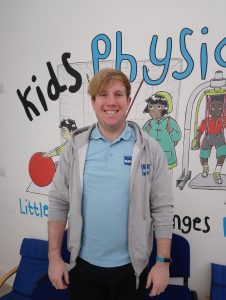
Melanie Horton BSc, PHYT
Melanie studied her BSc in Physiotherapy at the University of Hertfordshire where she qualified with a 1st class Honours degree in 2013. Since qualifying, Melanie has worked within the NHS, completing rotations to gain experience in different fields, before specialising in Adult Neurology. Although Melanie enjoyed working with adults, her passion was to always work with children and so from there then moved onto working at the Brainwave Centre, transferring her skills to Paediatric Neurology.
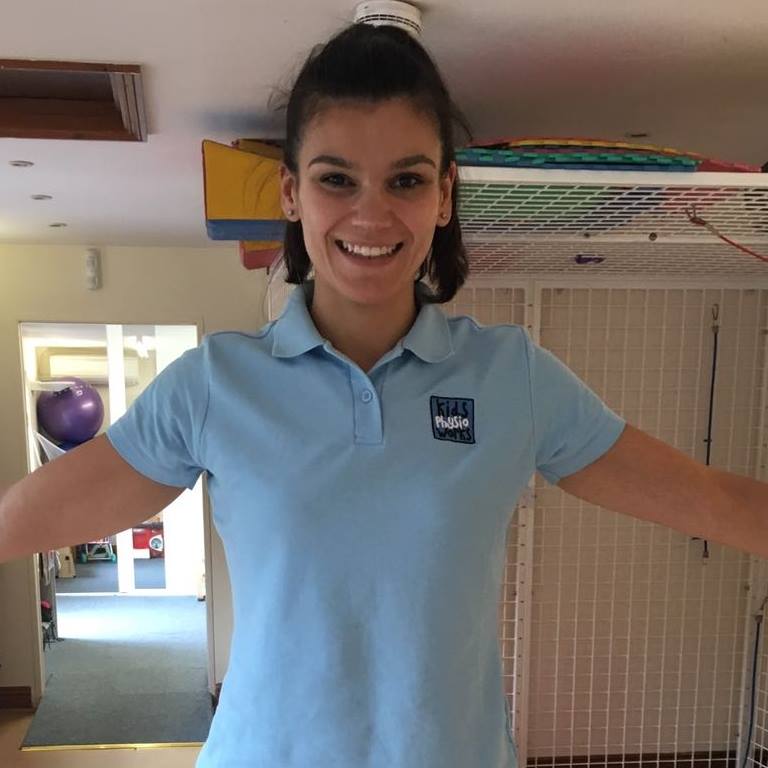
Kirsty Shepherd BSc, PHYT
Kirsty trained in Physiotherapy at Brunel University. Since qualifying she has worked as a Senior Physiotherapist at an Essex based Hospital where she completed many rotations and gained much knowledge and experience within different specialties. Kirsty went on to specialise in Paediatrics with a focus on Neurodisability at the Brainwave Centre where she further progressed her skills by assessing and treating children of all ages with many different diagnoses. Most recently Kirsty completed training in Constraint Induced Movement Therapy.
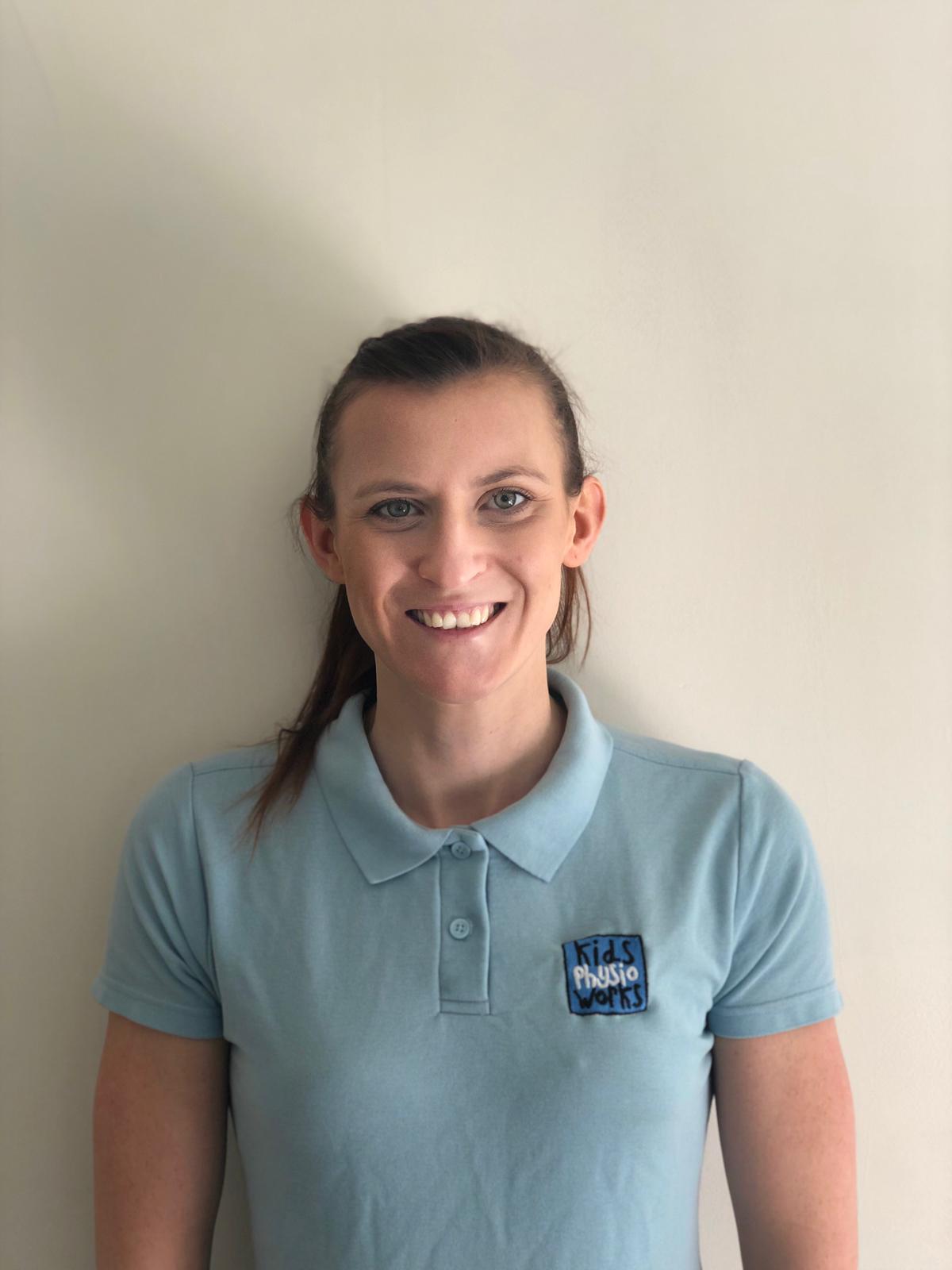
Watch the recordings at a time convenient to you! You have a full 12 months to access your course online.
12 months access to course recordings after the live events is included.

What Do Previous Attendees Say About Online Mini Series™ Courses From CPD Solutions?
The video loops as well as the images really helped to visualise and reinforce learning
It was great watching at home. I liked the quiz afterwards.
The ongoing access is the gem of your course
Being able to do the course in your own time at your own speed was really useful
Learnt loads! A good mixture of theory and practical elements. Very useful additional hand-outs for each section.
The best course I've seen. Have already recommended it
My knowledge was dated, I now feel armed with great theory and techniques for treating ACL patients.
This course will definitely be useful in my future practice, not only for what concerns a more complete and efficient objective assessment, but also a better treatment plan.
The advice on assessment and special tests for the hand and wrist and videos to support this most useful. Course will help to improve my assessment and treatment techniques of hand and wrist pathologies within practice.
I found the clinical based information really useful, I feel I know more information about different forms of BPPV, which is very helpful in differential diagnosis.
Take advantage of the easy Online Mini Series™ format and increase your confidence when dealing with your Cerebral Palsy patients
 Reserve Your Place Now
Reserve Your Place Now
£197 +VAT*
* overseas customers outside the EU will not be charged VAT. Overseas customers in the EU; provide your VAT number and we will refund the VAT.
Price includes all 3 sessions, notes and quiz
(8 hours CPD)
- No traffic jams or accommodation hassles
- No pet or child care issues
- No rota clashes to worry about or locum fees
Just great CPD and a valuable ongoing resource

100% Money Back Guarantee
Buy with absolute confidence as your purchase is protected by our 100%, no quibble money-back guarantee